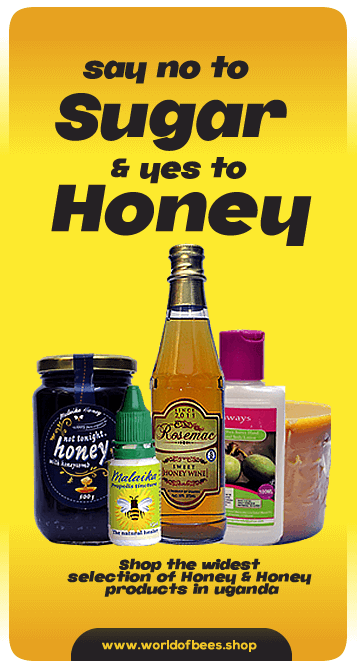Jinja deaf beekeepers group get their first harvest out of the BEE-PwD project.
For about a year now, TUNADO, with funding from the National Lottery Community Fund, partnered with Bees for Development to support Persons with Disabilities in the districts of Jinja and Gulu respectively. In Jinja district, TUNADO identified a group of 20 deaf beneficiaries to benefit out of this project. 15 of these are direct beneficiaries and 5 are indirect beneficiaries. In Gulu, a group of 20 blind persons were identified. This project kick-started in April 2019 and was slated to end by April 2021, though with the challenges brought by covid-19 pandemic, we were unable to finish off this project as projected. We found ourselves lagging behind on numerous activities due to the national lockdown. We therefore requested for project extension and luckily, this was granted. This project will now end in August 2021.
Specifically, in Jinja district (deaf persons), our training approach has always been supplemented by the beekeeping posters that were developed by the project. We realized that we are dealing with people of low literacy levels and with challenges in understanding professional sign language so we use a lot of strategies to ensure learning goes on.
While in Jinja, we conducted numerous training sessions on pest control, hive inspection, honey harvesting, processing of honey and beeswax. Under pest control, we taught the beneficiaries how to Identify pests, prevention of pests and the importance of keeping the apiary clean. As we visited their individual apiaries, we got to know that most of them had problems of termites and ants in their apiaries, so that became our main target during our training sessions.
Under the harvesting training session, we emphasized the need for them to have clean materials before they go out to conduct the harvesting exercise. This included washing of the buckets. At around 6:30pm in the evening, the beneficiaries got into their bee suites ready to harvest. We harvested some honey from 4 hives from Mr. Kasule Matthias (one of the beneficiaries). We took them systematically from sorting, crashing to straining using a honey strainer so as to get out very clean honey.
Unlike the normal practice where only trainings concentrate on honey processing leaving beeswax to waste, we went extra to train them on how to process beeswax. We cleaned the combs from where we extracted the honey and heated them under moderate temperatures and then strained using locally available materials. After a few minutes, we were able to extract our beeswax.
Our next trainings will still be on apiary management. We are also looking at a training session for packaging and branding. How to identify good packaging bottles that are easily marketable and also building the capacity of the local trainers. We have so far identified 3 trainers under the lead of kasule Matthias. We want to make sure there are locally available resources that the beneficiaries can easily turn to incase of absence of the project team.
Compiled by Hope Agwang – disability officer TUNADO
Stephen Muwanguzi – Knowledge management officer – Tunado.


